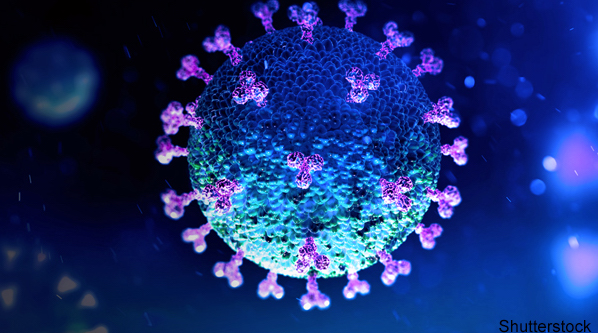
However, among patients who did not require any oxygen, dexamethasone did not help. In fact, more patients in that group who received the drug died, though the increase was not statistically significant. This is important, because giving dexamethasone to all patients with COVID-19 could be harmful.
Explore This Issue
ACEP Now: Vol 39 – No 08 – August 2020The lingering question is whether the extra 11 percent of patients who survived to day 28 among patients on ventilators had improved enough to be awake. That was not reported. Given the relatively low side-effect profile of dexamethasone for patients who are already moribund, it is reasonable to start this medication in the emergency department for patients diagnosed with COVID-19 admitted to the hospital either with a new oxygen requirement or need for intubation.
Remdesivir
The Adaptive Covid-19 Treatment Trial (ACTT-1) RCT was published May 22 in NEJM.2 ACTT-1 was a double-blind, randomized, placebo-controlled trial of remdesivir, an antiviral, given to patients within 72 hours of diagnosis of laboratory-confirmed SARS-CoV-2 infection in the in-patient hospital setting. The primary outcome of interest was time to recovery, which was defined as either being well enough to have been released from the hospital or remaining in the hospital for infection-control purposes only (ie, to protect families of the patients, not due to the severity of their illness).
The average recovery time was 11 days in the remdesivir group compared to 15 days in the placebo group. While the study was not assessed to directly and properly measure mortality per se, 7.1 percent of patients receiving remdesivir died by day 14 compared to 11.9 percent in the placebo group (hazard ratio 0.7, 95 percent confidence interval 0.47 to 1.04). Of note, remdesivir did not seem to improve time to recovery in patients who were already receiving high-flow oxygen, non-invasive mechanical ventilation, mechanical ventilation, or extracorporeal membrane oxygenation (ECMO) at time of enrollment. Put another way, critically ill patients remained sick whether or not they received remdesivir, though the reduced length of stay for less severe patients could be an important outcome during any future surges that occur during the pandemic when resources may become limited.
Two big caveats to consider: one-third of patients had not reached day 29 of their course by the time of publication. Interestingly, this data has yet to be published as of August 1, including patient-level mortality analyses. We are left to wonder why. Also, the investigators changed the primary outcome of the study in April, after recruitment began. The initial plan had been to assess overall clinical improvement, including mortality rates. That was changed to an assessment of time to discharge among patients well enough to be sent home.
Hydroxychloroquine
Several randomized controlled trials have studied hydroxychloroquine’s efficacy in preventing or treating COVID-19. None have shown that it works. The most substantial of these trials was also performed in the United Kingdom by the RECOVERY group (still in preprint) and an RCT from Brazil of patients with mild to moderate COVID-19.3 The study from Brazil was published in NEJM July 23.
Pages: 1 2 3 | Single Page




No Responses to “COVID-19 Therapeutics: What Works, and What Doesn’t?”